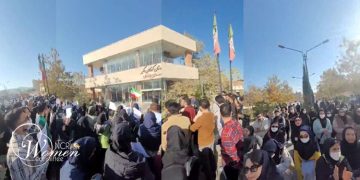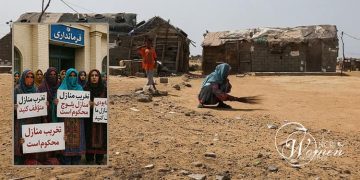On Tuesday, July 29, 2025, the streets of Khomam in Iran’s Gilan province became the scene of spontaneous public protests — led predominantly by women.
Demonstrators, many of them women at the forefront, chanted slogans such as “Incompetent officials, we don’t want you!” and demanded immediate accountability from local and national authorities. The atmosphere was tense and volatile, reflecting widespread frustration over the government’s chronic mismanagement of essential services.
A day before the protests, a local resident was reportedly arrested for sharing a protest call-out on Instagram — a move that only intensified public outrage instead of quelling it.
“We have no water, no electricity, no life. This isn’t just mismanagement — it’s a direct insult to our dignity,” one female protester said.
Security forces responded with threats and force, attempting to disperse the crowd. Eyewitness accounts indicate that violence was used, particularly against women who had bravely taken up front-line positions in the demonstration.
Protesters warned that unless their demands are met, this unrest will only mark the beginning.

In one of the protestors’ statements, a woman declared:
“This wasn’t just a gathering — it was the cry of a generation that has nothing left to lose.”
The protest comes on the heels of a revealing admission by the clerical regime’s president, Masoud Pezeshkian — a figure closely aligned with Ali Khamenei, the mullahs’ regime. In late July, Pezeshkian acknowledged that Iran’s water reserves are in a critical state and admitted that recent years have seen “misguided” resource management.
Residents of Khomam blame the current crisis on systemic corruption, administrative collapse, and the regime’s persistent neglect of citizens’ basic needs. They warn that continued indifference will likely trigger broader unrest.
Similar scenes have unfolded in recent days in the city of Sabzevar, which witnessed two consecutive nights of protests over large-scale utility outages. The growing frequency of such localized uprisings reflects an intensifying wave of public anger — and the state’s ongoing failure to provide even the most fundamental services.
























